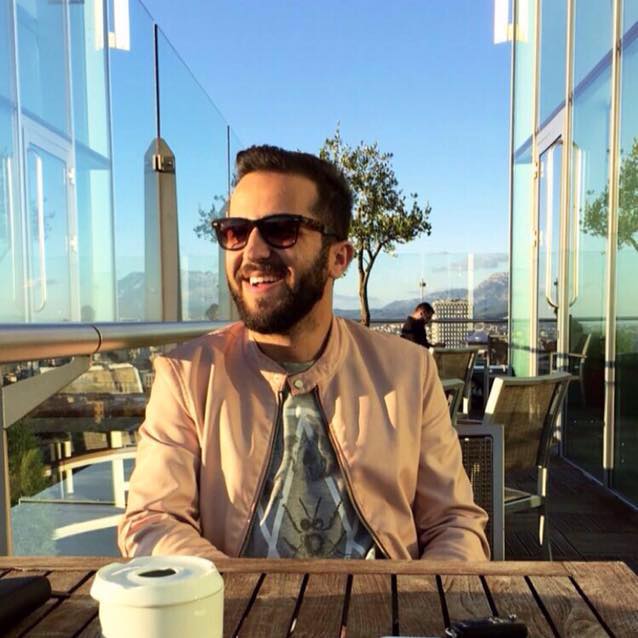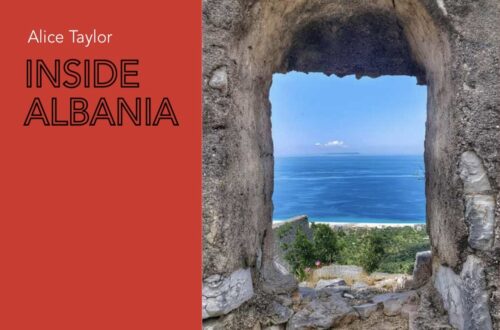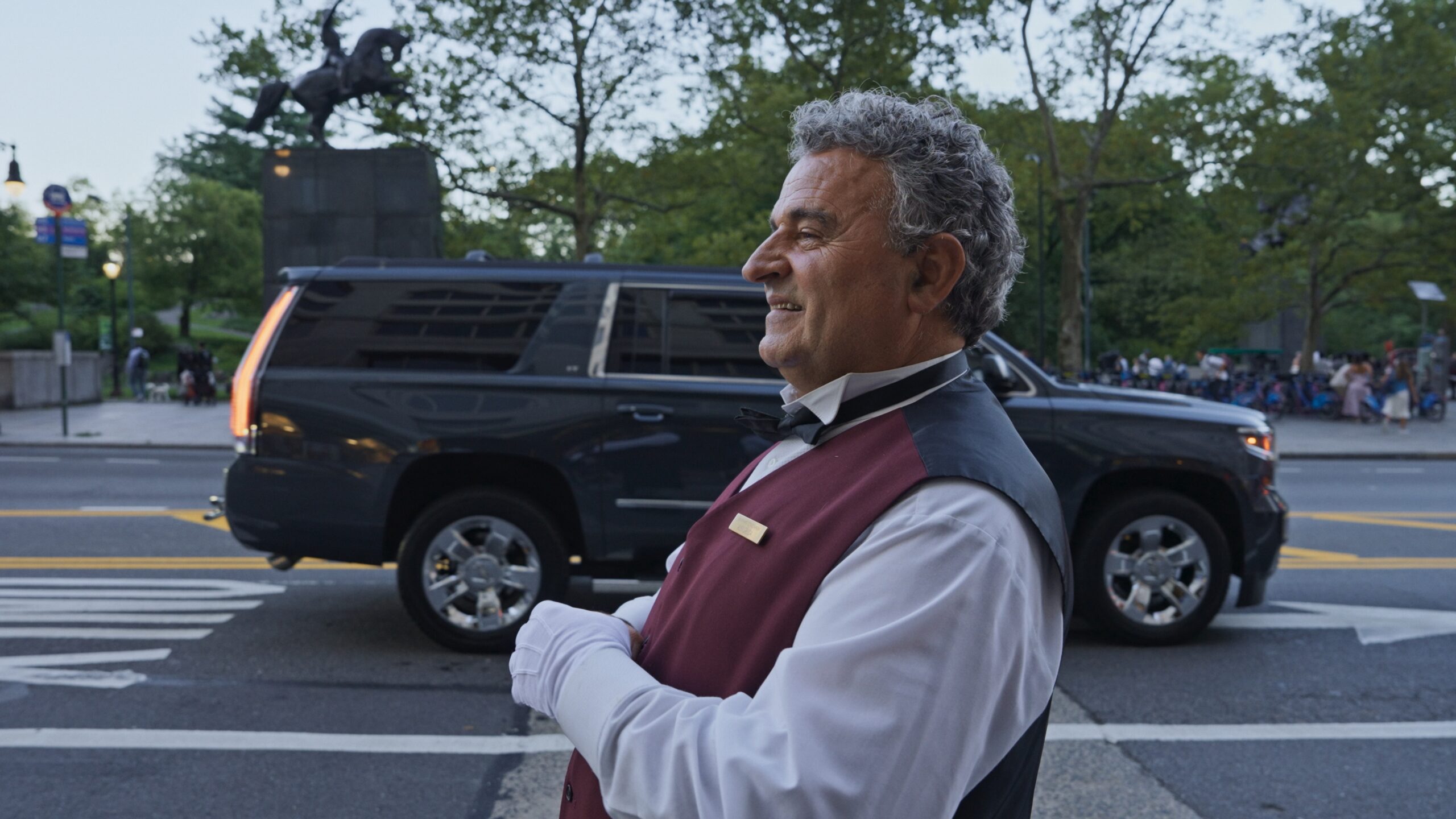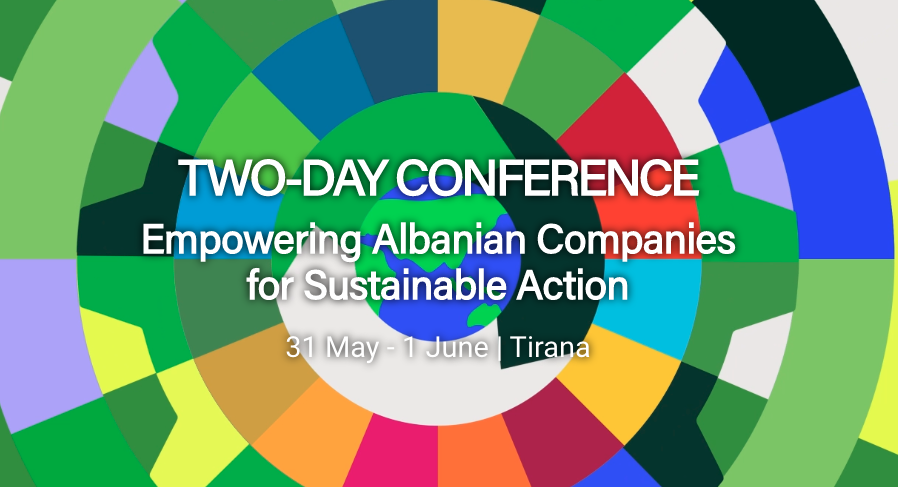Following on from one of my previous articles which delved into sexuality, I decided I wanted to dig deeper. Through a mutual friend, I was put in contact with Arber Kodra, Executive Director of the Open Mind Spectrum Albania (OMSA) who is one of the leading voices of the LGBTI community, not just in Albania, but in the whole of the Balkans.
Growing up in quite a liberal family, both of Arber’s parents were business people who travelled a lot for work and being accustomed to the complexities and nuances of countless other societies they adopted quite a liberal attitude. This didn’t mean, however, that Arber found coming to terms with who he was any easier.
We met in Komiteti over tea and cake, and I instantly warmed to him. Smiley, friendly, and talkative with a resounding energy about him, I found his story both fascinating and deeply moving. Like many homosexuals, Arber was aware of his sexual orientation from an early age and at the age of 13 years old, whilst looking at pornography, he found his eyes drawn to the men in the images, rather than the women he was expecting to be excited by. Even though he knew his family were open minded and laid back, the fact that he was attracted to men scared him. He tried to ignore it, to repress it and to tell himself that it was wrong, but as with any repression of one’s true self, this resulted in destructive and harmful behaviour. He became depressed and tried to escape himself by turning to drink and drugs to mask the emotional turmoil inside of him.
He experienced bullying at school and from people around him and this combined with the fact that he couldn’t, or didn’t want to accept his true self and sexuality came to a head when he was 21. Still using alcohol and drugs to help him escape from the reality he didn’t want to face, he felt that both his body and his mind were suffering and it had reached a point where he felt he would either kill himself or fight it- there was no in-between.
It was then he came clean about his lifestyle habits with his parents. Asking for their help and support, he was put in touch with a psychologist who enabled him to face his demons head-on and to finally begin to not just find himself but accept himself as well. A few years later, Arber came out to his mother. They say that a mother always knows and this was certainly true in this case, however, she had wanted to hear it from his own mouth and in his own words. To Arber’s great relief, she reacted with love, acceptance, and affection, and even said that she would take on the task of breaking the news to his father, and his brother.
Let me make something clear- this reaction of support and love is not the norm in a society such as this. LGBTI individuals that come out to friends, family, and colleagues, regularly face discrimination and verbal, sometimes even physical abuse. In Albania, for now, at least, homosexuality is generally not accepted. Whilst on paper, the public are not allowed to discriminate or treat people differently because of their sexual preference, the reality does often not reflect this. What Arber’s mother did next was something that had not been done before in Albania- she became an activist for LGBTI rights and she became the first Albanian parent to publicly discuss what it is like to have an LGBTI child. Speaking at the first LBGTI regional conference that was organised by the U.S. Embassy in Tirana, she addressed the attendees, delivering a powerful and emotional speech that reduced the audience to tears.
Having a mother that not only supports him, but that who speaks out publicly on the matter and seeks to help and counsel other parents is something really quite remarkable. There is no doubt that Arber is very lucky in this respect, a fact he is aware of and wants to use to help others that may not have so many nurturing or accepting people around them.
But Arber’s road to activism and where he finds himself today was not easy by any means. Starting off by working in the shadows, putting up posters at night for fear of being spotted and beaten in the day, creating videos with faces blanked out, and taking tiny, tentative steps, today he is now involved with the creation of a community centre and advising the government on changes to law and policy.
In 1995, homosexuality was decriminalised in Albania but it is only since the country has sought EU Membership that it has been made clear that a lot more work needs to be done. At present, same-sex marriage or civil unions are not permitted, forced or coerced surgeries for intersex individuals are carried out, and there are no health care provisions for transgender individuals, nor can they change their name or gender legally. Whilst some laws that protect the rights of LGBTI individuals have been created, the reality is that they are not enforced, and most importantly, no politicians want to put their name to campaigning for change. But Arber was determined not to settle for this attitude.
After months of planning, hundreds of ignored emails, texts, and calls, and a whole lot of gumption and perseverance, he has finally been able to organise a Civil Society Forum under the title of “LGBTI in the Political Agenda in Albania” which will be held at the Kuvendi I Shqiperise on April the 6th, 2018 and for the first time, will enjoy support and collaboration from the Assembly of Albania. This event will bring together leading LGBTI activists, members of parliament, ministers, and even possibly Senida Mesi, the Vice Prime Minister of Albania (TBC). Speaking at the event will be Arber himself, Vasilika Hysi (Vice Head of Parliament), Ogerta Manastirliu (Minister of Health and Social Defense), Claus Neukirch (Head of Office Council of Europe), Romana Vlahutin (Ambassador of EUD to Albania), Donald Lu (US Ambassador to Albania), Caryn Viverito (LGBTIQ Victory Institute, USA), and members of the European Parliament. Other representatives will include Nora Malaj (MP), Bruna Laboviti (Republican Party), Grida Duma (Democratic Party), Irma Baraku (Commissioner for Protection from Discrimination), Erinda Ballanca (Ombudsman) and many leading figures from local and international LGBTI activism NGOs.
Despite the legal progress in Albania on this issue such as the National Action Plan on LGBTI People in the Republic of Albania, 2016-2020, the Resolution on the rights of the LGBTI People, and the Anti-Discrimination Law adopted by the Albanian Parliament, these measures are not being implemented efficiently. The forum will provide a brief description of the situation with status and rights for LGBTI people in the country with a goal to start the conversation with political parties and lay the foundations for a longer and richer discussion on how together the shared goal can be achieved. This goal which seeks to have a country that works for everyone, regardless of their sexual orientation, gender identity or sex characteristics. Talking on how political parties can benefit from a greater diversity within their structures, how supporting equality for LGBTI people does not mean losing votes and discussing the steps that need to be taken to truly represent Albanian diversity is going to be the order of the day’s events. A number of politicians in Albania feel pressure from the European Union to pass more inclusive legislation as a building block towards the path to join the European Union. However, many of these politicians will not come out to criticise extremists and discrimination against the LGBTI community, therefore it is important to make it clear that political parties must take LGBTI rights seriously as a part of their stance on human rights.
The fact of the matter is that the fight for equality on all fronts is not going away anytime soon and people like Arber and his mother should be truly admired for the stand they are taking in terms of demanding equality, recognition, respect, and fair treatment. If Albania wants to tirelessly pursue its EU dream, then matters such as the rights of those who are on the fluid spectrum of human sexuality(who according to various international studies could amount to an average of 10% of any given population) need to not just be recognised on paper, but enforced and ensured in every aspect of day to day life. At the end of the day, love is love, people are people, and whether we like to admit it, we are all exactly the same on the inside. Who other people chose to share a bed with, their life with, or their love with is really not any of anyone else’s business and as such should have no impact on how we treat someone.
The tenacity and drive that this man has shown and he passion with which he not just overcomes, but decimates any obstacle in his way is to be truly admired. I just hope that all of these politicians and public figures that have promised to take part in this weeks forum, keep their word and don’t put the fear of losing votes before the need to do what is right.
Follow The Balkanista!




